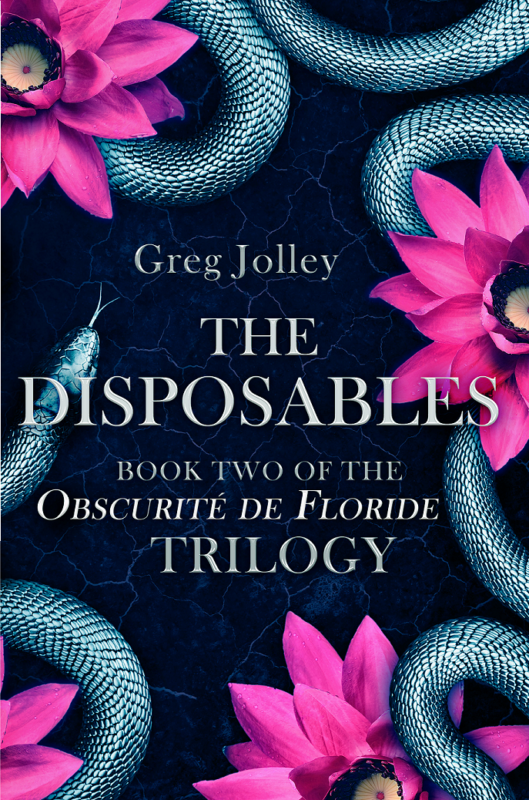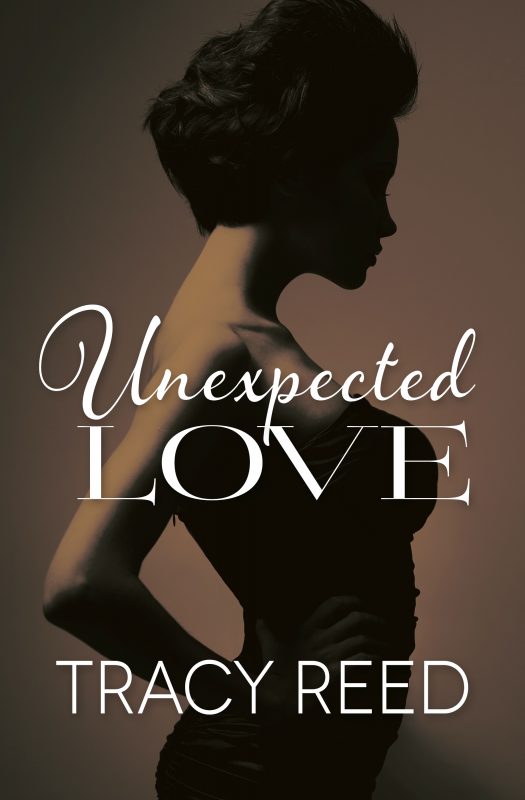The Character Must Die
April 22, 2024 by Veronica Jorge in category Write From the Heart by Veronica Jorge tagged as characters, letting go, Veronica Jorge, writing
I killed one of the characters in my novel.
(It was more like two, but I have no qualms about the second one.)
I came up with a death scene I really liked and just had to use it, so someone had to “go.”
I’m still not sure if it was in the best interest of the story, or if I’m just stuck on having to use a particular description.
As I reflect on the sequence of events and the wording, and debate the character’s fate; to live or not to live? I think about language in general and the nuances contained therein.
The English “goodbye”, like the characters in a book, can be so finite. Here today, gone tomorrow.
In contrast, parting words in other languages encompass a world of possibilities of that which is yet to be experienced. Whether it’s, auf wiedersehen in German, arrivederci in Italian, or hasta luego in Spanish, each expresses the probability, and the hope, that we will meet again. Even the Japanese rarely use sayonara, unless it really is “the end.”
In life, as in writing and in reading, I prefer the meanings that other languages provide for that interim we call separation. And I would like to think that the characters we create in our imaginations, that eventually inhabit the pages of a book, continue on, not only in our own minds, but in the minds, and perhaps the hearts, of our readers.
So, if I must terminate one of my characters, I’ll think of them as an old soldier who has faithfully served, and comfort myself with the words of General Douglas MacArthur.
“Old soldiers never die, they just fade away.”
And I realize that no matter how wonderful a story may be, as we grow and change, some of the characters we loved best as writers and readers do fade away and/or are replaced by others.
But, they never really die.
We meet them over and over again in the ways they have touched us and changed us, and have made us different and maybe, even better, for having met them.
See you next time on May 22nd.
Veronica Jorge
0 1 Read moreThe Character Must Die
July 22, 2017 by Veronica Jorge in category Write From the Heart by Veronica Jorge tagged as characters, letting go, Veronica Jorge, writing I killed one of the characters in my novel.
I killed one of the characters in my novel.
(It was more like two, but I have no qualms about the second one.)
I came up with a death scene I really liked and just had to use it, so someone had to “go.”
I’m still not sure if it was in the best interest of the story, or if I’m just stuck on having to use a particular description.
As I reflect on the sequence of events and the wording, and debate the character’s fate; to live or not to live? I think about language in general and the nuances contained therein.
The English “goodbye”, like the characters in a book, can be so finite. Here today, gone tomorrow.
In contrast, parting words in other languages encompass a world of possibilities of that which is yet to be experienced. Whether it’s, auf wiedersehen in German, arrivederci in Italian, or hasta luego in Spanish, each expresses the probability, and the hope, that we will meet again. Even the Japanese rarely use sayonara, unless it really is “the end.”
 In life, as in writing and in reading, I prefer the meanings that other languages provide for that interim we call separation. And I would like to think that the characters we create in our imaginations, that eventually inhabit the pages of a book, continue on, not only in our own minds, but in the minds, and perhaps the hearts, of our readers.
In life, as in writing and in reading, I prefer the meanings that other languages provide for that interim we call separation. And I would like to think that the characters we create in our imaginations, that eventually inhabit the pages of a book, continue on, not only in our own minds, but in the minds, and perhaps the hearts, of our readers.
So, if I must terminate one of my characters, I’ll think of them as an old soldier who has faithfully served, and comfort myself with the words of General Douglas MacArthur.
“Old soldiers never die, they just fade away.”
And I realize that no matter how wonderful a story may be, as we grow and change, some of the characters we loved best as writers and readers do fade away and/or are replaced by others.
But, they never really die.
We meet them over and over again in the ways they have touched us and changed us, and have made us different and maybe, even better, for having met them.
See you next time on August 22nd.
 Veronica Jorge
Veronica Jorge
Manager, Educator, and former High School Social Studies teacher, Veronica credits her love of history to the potpourri of cultures that make up her own life and to her upbringing in diverse Brooklyn, New York. Her genres of choice are Historical Fiction where she always makes new discoveries and Children’s Picture Books because there are so many wonderful worlds yet to be imagined and visited. She currently resides in Macungie, PA.
2 0 Read moreAffiliate Links
A Slice of Orange is an affiliate with some of the booksellers listed on this website, including Barnes & Nobel, Books A Million, iBooks, Kobo, and Smashwords. This means A Slice of Orange may earn a small advertising fee from sales made through the links used on this website. There are reminders of these affiliate links on the pages for individual books.
Search A Slice of Orange
Find a Column
Archives
Featured Books
UNEXPECTED LOVE
I can't believe I fell in love with my husband's best friend.
More info →Newsletter
Contributing Authors
Search A Slice of Orange
Find a Column
Archives
Authors in the Bookstore
- A. E. Decker
- A. J. Scudiere
- A.J. Sidransky
- Abby Collette
- Alanna Lucus
- Albert Marrin
- Alice Duncan
- Alina K. Field
- Alison Green Myers
- Andi Lawrencovna
- Andrew C Raiford
- Angela Pryce
- Aviva Vaughn
- Barbara Ankrum
- Bethlehem Writers Group, LLC
- Carol L. Wright
- Celeste Barclay
- Christina Alexandra
- Christopher D. Ochs
- Claire Davon
- Claire Naden
- Courtnee Turner Hoyle
- Courtney Annicchiarico
- D. Lieber
- Daniel V. Meier Jr.
- Debra Dixon
- Debra H. Goldstein
- Debra Holland
- Dee Ann Palmer
- Denise M. Colby
- Diane Benefiel
- Diane Sismour
- Dianna Sinovic
- DT Krippene
- E.B. Dawson
- Emilie Dallaire
- Emily Brightwell
- Emily PW Murphy
- Fae Rowen
- Faith L. Justice
- Frances Amati
- Geralyn Corcillo
- Glynnis Campbell
- Greg Jolley
- H. O. Charles
- Jaclyn Roché
- Jacqueline Diamond
- Janet Lynn and Will Zeilinger
- Jeff Baird
- Jenna Barwin
- Jenne Kern
- Jennifer D. Bokal
- Jennifer Lyon
- Jerome W. McFadden
- Jill Piscitello
- Jina Bacarr
- Jo A. Hiestand
- Jodi Bogert
- Jolina Petersheim
- Jonathan Maberry
- Joy Allyson
- Judy Duarte
- Justin Murphy
- Justine Davis
- Kat Martin
- Kidd Wadsworth
- Kitty Bucholtz
- Kristy Tate
- Larry Deibert
- Larry Hamilton
- Laura Drake
- Laurie Stevens
- Leslie Knowles
- Li-Ying Lundquist
- Linda Carroll-Bradd
- Linda Lappin
- Linda McLaughlin
- Linda O. Johnston
- Lisa Preston
- Lolo Paige
- Loran Holt
- Lyssa Kay Adams
- Madeline Ash
- Margarita Engle
- Marguerite Quantaine
- Marianne H. Donley
- Mary Castillo
- Maureen Klovers
- Megan Haskell
- Melanie Waterbury
- Melissa Chambers
- Melodie Winawer
- Meriam Wilhelm
- Mikel J. Wilson
- Mindy Neff
- Monica McCabe
- Nancy Brashear
- Neetu Malik
- Nikki Prince
- Once Upon Anthologies
- Paula Gail Benson
- Penny Reid
- Peter Barbour
- Priscilla Oliveras
- R. H. Kohno
- Rachel Hailey
- Ralph Hieb
- Ramcy Diek
- Ransom Stephens
- Rebecca Forster
- Renae Wrich
- Roxy Matthews
- Ryder Hunte Clancy
- Sally Paradysz
- Simone de Muñoz
- Sophie Barnes
- Susan Squires
- T. D. Fox
- Tara C. Allred
- Tara Lain
- Tari Lynn Jewett
- Terri Osburn
- Tracy Reed
- Vera Jane Cook
- Vicki Crum
- Writing Something Romantic
Affiliate Links
A Slice of Orange is an affiliate with some of the booksellers listed on this website, including Barnes & Nobel, Books A Million, iBooks, Kobo, and Smashwords. This means A Slice of Orange may earn a small advertising fee from sales made through the links used on this website. There are reminders of these affiliate links on the pages for individual books.





































